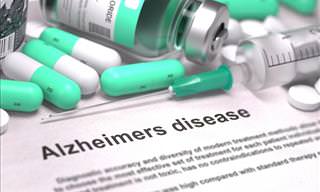1. Taking Midday Naps Can Help Reduce Blood Pressure
An afternoon nap may be as effective as other lifestyle changes (e.g. cutting out alcohol from your diet) at reducing your blood pressure - found a Greek study published in early March of 2019. The scientists measured an average 5.3 mm Hg drop in systolic blood pressure of the study participants, who were diagnosed with pre-hypertension and had an average 129.9 mm Hg systolic blood pressure.
This is a significant drop in blood pressure since a difference as small as 2 mm Hg can sometimes be the deciding factor of whether or not someone suffers a heart attack or other cardiovascular emergencies. So, if you have the luxury of taking a quick midday-nap, take the chance every time, and your heart and cardiovascular system will thank you for it.
2. Moderately High Blood Pressure May Be Actually Beneficial to Some
Another European study, this time from Germany, challenged what we consider 'normal blood pressure' in adults past the age of 80. This longitudinal study was published in July of 2019, and it discovered that it may actually be better NOT to lower blood pressure below 140/90 since they found that blood pressure below that margin increased the risk of death in the population that was 80 and older by 40%.
3. Spirulina Supplements Are Capable of Reducing Blood Pressure
Spirulina is a popular 'superfood' supplement people take for various reasons starting from weight loss to metabolic issues and immune health. Essentially, the product is the dried biomass of the marine bacterium Spirulina platensis, which happens to be rich in a number of nutrients, vitamins, and protein while being very low in calories.
Among the most common uses of spirulina is as a contributing treatment of hypertension, and a recent study did not just find that it is capable of reducing blood pressure, but also explained why that is the case. The researchers discovered a specific protein that our body produces as a result of digesting spirulina. This protein, named SP6, causes blood vessels to relax, and the authors suggest that it may be developed into a new, even more effective, treatment of hypertension.
4. Your Oral Health Affects Blood Pressure, Too
A beautiful smile may not just be the reflection of your oral health and impeccable oral hygiene, but it can also reveal your risks of hypertension. One study published in September showed that the presence of gum disease, or periodontitis, can increase one's risk of high blood pressure by 49%. The more advanced the gum issue, the more likely you are to suffer from hypertension - the authors of the study concluded.
Another study also linked the use of antibacterial mouthwash that contained the chemical called chlorhexidine with increased blood pressure just after one week of use. The researchers suggest that the antibacterial agent kills beneficial mouth bacteria, which produce an important chemical that naturally relaxes the blood vessels called nitric oxide. So. maybe using mouthwash isn't worth it, after all.
5. Hypertension May Soon Be Diagnosed Through an Eye Exam
A British study published in October of 2019 suggests that an eye exam may be a very quick, easy, and cost-effective way of diagnosing or even predicting hypertension years before it actually develops. This is because we have very small blood vessels in the back of our eyes, which are easily visible with the right tools. These tiny capillaries are the first to show signs of cardiovascular disease, years before any other symptoms.
Needless to say, this examination has the potential of becoming an effective screening method for hypertension, and the disease could be prevented in millions of people. For a more detailed review of the study, follow this link: Can an Eye Exam Predict Future Cardiovascular Problems?
6. Frequent Urination at Night Might Be a Sign of Hypertension
People suffering from inexplicable nocturia, or the need to wake up several times during the night to urinate, may want to check their cardiovascular health and salt intake. In Japan, where salt intake is much higher than other countries and hypertension is the national disease, a study published in March of 2019 revealed that nocturia can be caused by hypertension, high sodium intake and increased fluid buildup in the body. Luckily, decreasing the amount of salt in one's diet typically makes the night trips to the bathroom go away.
This is not to say that nocturia is exclusively caused by hypertension, as the condition may be the manifestation of other serious diseases as well, as discussed in the following article: The Surprising and Often Dangerous Causes of Nighttime Urination. If you're experiencing the condition and drinking less before bed or decreasing your salt intake doesn't help, it's recommended to see a doctor.
7. Low Zinc Blood Levels Can Raise Your Blood Pressure
Foods That Are An Excellent Source of Zinc
Zinc is one of the most important minerals we have to eat every day, as it plays a key role in supporting our immune system, preventing skin issues and hair loss, as well as keeping depression at bay. It turns out that we can add to that list, since zinc also aids in the excretion of sodium through the kidneys, thereby preventing cardiovascular issues, such as hypertension.
High sodium levels are a known risk factor of hypertension, so keep your zinc levels in check, especially if you're vegetarian or in your 60's and older, as these people are more likely to have a zinc deficiency. These findings were published in March in the American Journal of Physiology.
8. Dementia and High Blood Pressure May Be More Closely Linked Than Expected
Another seminal finding made this year was the correlation of hypertension with all varieties of dementia, including Alzheimer's, and not only vascular dementia as was previously believed. Vascular dementia occurs as a result of a stroke, and hypertension increases the risk of stroke, so there isn't any doubt that the two conditions are linked, but it turns out that even Alzheimer's is somehow associated with the condition, too.
In a recent article, it was shown that a drug called Nilvadipine used to treat hypertension increased the blood flow in a certain brain area called the hippocampus in Alzheimer's patients. The hippocampus is one of the memory centers of the brain, and it is heavily affected in Alzheimer's, so the findings that a hypertension medication can mitigate the damage are exciting, to say the least. For a detailed discussion of the findings, go to A Hypertension Medication That May Help Treat Alzheimer's
9. Drinking Mineral Water Is Beneficial for Hypertension
Water enriched in minerals, such as potassium, calcium, and magnesium is also typically higher in sodium than normal drinking water, so it must be bad for hypertension, correct? It turns out that the answer is 'Not Quite', as shown in an article published in the journal of the American Heart Association in May of 2019.
Conducted in the southwest coastal region of Bangladesh, where water varies in both salinity and mineral composition, the study found that the harmful salt content of the water was neutralized by the calcium and magnesium it also contained. In fact, the mineral water had an overall blood-pressure-lowering effect thanks to its mineral content. This finding is evidence that both minerals have the potential of helping blood pressure normalization, further emphasizing the importance of a healthy diet in hypertension prevention and treatment.
 Go to BabaMail
Go to BabaMail
































